brand
THE MAKING OF A CSR MASTERSTROKE: AN X-RAY OF FIRSTBANK’S YEOMAN EFFORT TO MOVE ONE MILLION CHILDREN TO E-LEARNING
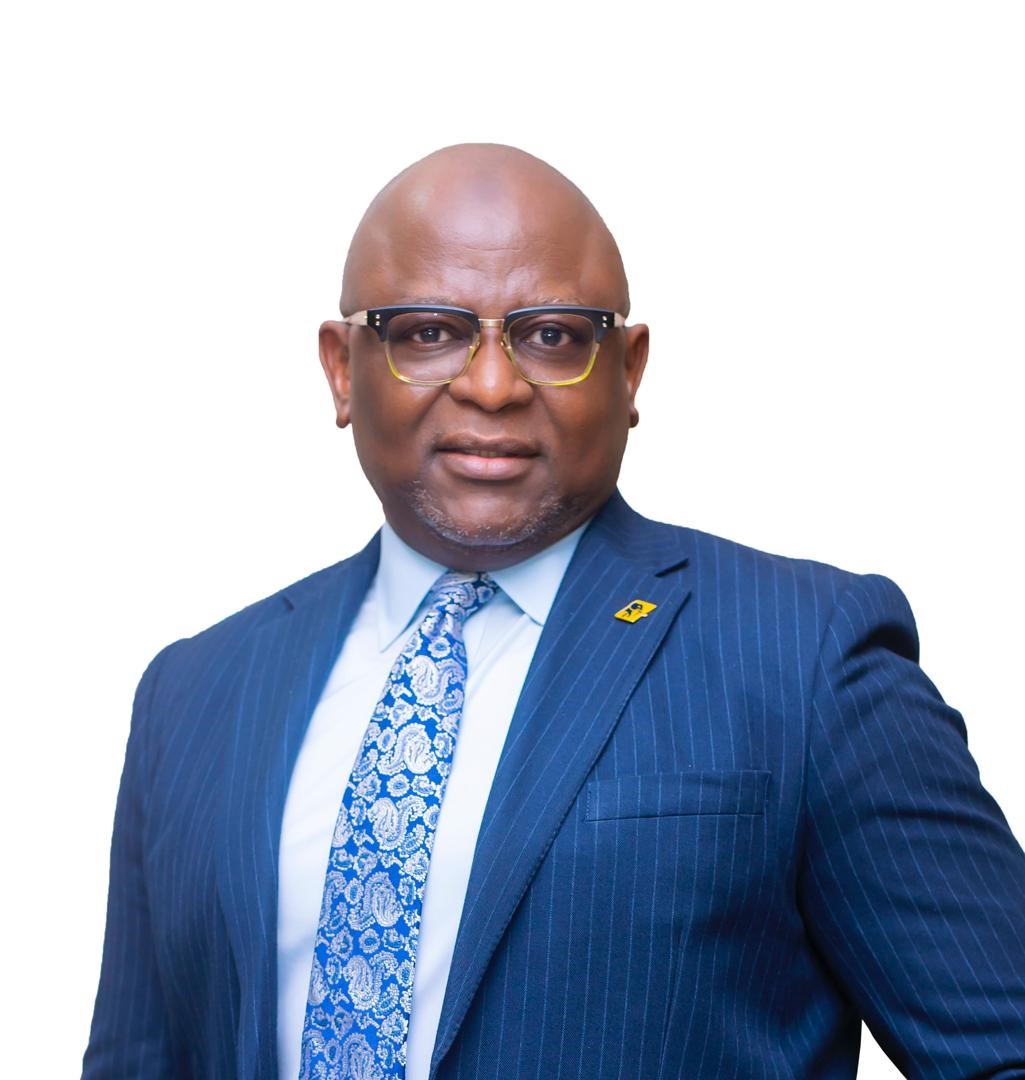
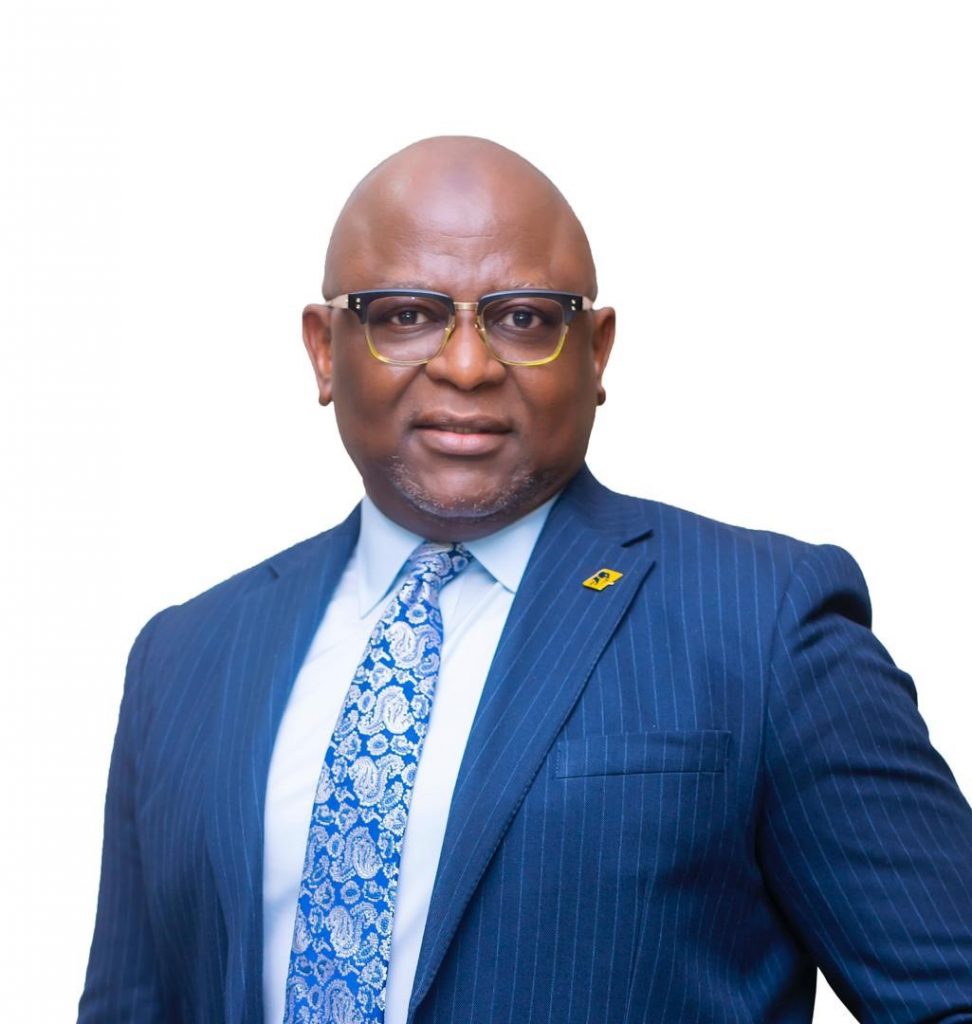 The rabbit hole of uncertainty, confusion and fear that pupils and their parents fell into in the dying days of March when the country was in lockdown was best captured in a Saturday Sun feature of May 16, titled, “COVID-19: Troubles of e-Learning.”
The rabbit hole of uncertainty, confusion and fear that pupils and their parents fell into in the dying days of March when the country was in lockdown was best captured in a Saturday Sun feature of May 16, titled, “COVID-19: Troubles of e-Learning.”
The story catalogues the challenges that erupted out of the disruption caused by the coronavirus pandemic, the fears and frustrations brewed by the new abnormality foisted on the world, the pessimism that pervaded the globe from developed to underdeveloped countries and the possibilities that blew up in the aftermath in the education stratosphere.
With the new order of social distancing, self-isolation, government-enforced quarantine and the ubiquitous lockdown, the prospect of indefinite stay at home until at least an elusive vaccine is found, loomed. This precipitated a distress as never seen before in the education space.
Yet, a panacea was at hand: Digital learning, though hitherto given scant attention. But crossing into that nirvana was an uphill task, especially, in this part of the world. Why: The existence of a huge digital deficit both in infrastructure and the requisite skill.
The dilemma confronting parents, pupils and tutors are multi-dimensional as illustrated by these three vignettes from the story:
Oko Odinakachi, a student of Abia State University, faced frustration on two fronts: her institutions dillydallying about adopting the e-learning strategy on the one hand; her little faith in digital learning, on the other hand. “I was on the verge of writing my first-semester examination. How possible can we do that digitally when there are issues with even JAMB CBT here in our country?”
A father whose daughter, a student of Federal Government College Shagamu preparing for her Senior School Certificate Exam, was compelled to seek a suitable e-learning portal because WAEC advised students to be studious during the lockdown as they’d be going straight into the exam hall at short notice as soon as the pandemic is over. The search led him to an online WAEC Preparatory Class that demanded payment for requisite online resources. “One subject is N1, 500, four subjects N4, 500 and six subjects cost at N6, 500. I didn’t go further because of the fee, which I think is exorbitant, given the current state of the country,” he complained. He joined the rank of other parents who raised concerns over exploitation by mercenaries masquerading as e-learning groups.
Abolade Kunle, a JSS3 student was aware of the government-sponsored tutorial on the radio but he was unable to enjoy the benefits: “We don’t have a radio set in the house. I use my dad’s phone once in a while but he doesn’t allow me to use it all the time,” he railed. A related drawback was cited by one of his teachers at the public school in Mushin: “In the past five weeks, we have had barely three days of electricity supply. It is not every parent that can afford a generator. Is it not when you have electricity supply that the children can watch [government educational programme on] the television?”
The absence of curative or prophylactic breakthrough against the virus meant that academic activities would remain in limbo, while pupils and their parents are faced with the undaunted possibility of a long spell at home. The prospect of a long lull of academic inactivity struck a palpable fear that fueled the scramble unto digital learning platforms as educationists and institutions across the country experimented with remote learning, albeit on a trial-and-error basis. The efforts were at best tangled; the process muddled; the result ineffective. Even, for students of tertiary institutions, the online class was to many a Lala-land.
With the option inevitably narrowed down to digital learning, a Catch-22 situation evolved. Who’s going to make it happen? How? When?
Best foot forward
Eventually, the first foot forward––and indeed the best one––came and it was from First Bank of Nigeria Limited.
The bank, a leading financial inclusion services provider, announced its intention to roll out an innovative e-learning initiative on the heels of its philanthropic contribution of the sum of one billion naira to the Coalition Against COVID-19 (CACOVID), a private-sector task force that partners the Federal Government, the Nigeria Centre for Disease Control (NCDC) and the World Health Organisation (WHO) to combat the coronavirus in Nigeria.
In the months to come, the bank’s effort would resonate forcefully in the education space. The reason for this was not farfetched. Since responsiveness remains a cornerstone of Corporate Social Responsibility, when it is timely, it becomes a major coup. The severity of the pandemic required “uncomfortable, transformative responsiveness,” not the usual CSR response where organisations choose and design responsiveness on their own terms, described by Wayne Visser in Evolution and Revolution of Corporate Social Responsibility, as “when giving is easy and cheque-writing does nothing to upset their commercial applecart.”
Taking on the e-learning challenge head-on was an self-assigned project for which the bank was not under any compulsion to undertake. That it volunteered to tackle the challenge is an indication of the largeness of its CSR aorta.
Suffice to say that a handful of digital learning initiatives exist before the advent of the Covid-19 lockdown; the First Bank effort, however, resonates louder because it has a measurable stated goal: Moving one million pupils into e-learning platform.
A response apt and adequate
Lagos State’s prompt response to the pandemic included the immediate shutdown of schools. By March 25 (four days before Lagos State went into total lockdown on the order of the President), the First Bank initiative was rolled out, and it inalienably took the optics of “the” response to the glitch caused to the education system by the coronavirus pandemic.
First Bank went into collaboration with Lagos State Government and an indigenous mobile learning platform, Robert and John Limited, whose trademark Roducate e-solution, a comprehensive curriculum-based education, is a cornucopia for a broad spectrum of students.
Having powered similar projects in the past, Robert and John was an obvious best in the e-learning business, a fact reinforced by First Bank CEO, Adesola Adeduntan: “In searching for the best fit solution, several options were considered by educators and teachers from the state and First Bank over the last couple of weeks before adjudging Roducate the offering from Robert and John, an innovative technology firm, to be the best of all reviewed.”
Is Roducate the Rosette stone of online learning? The facts were in its favour. Its claim of being the “most comprehensive e-learning platform in Nigeria and indeed Africa” is justified on its curriculum-based education for primary, secondary, and tertiary students. Moreover, ;it has been active in the e-learning space as far back as 2014 and has perfected the mechanics of effective digital learning, winning endorsements along the way from NUC, NERDC, JAMB and Lagos State Ministry of Education.
And by tweaking its blueprint, it came up with an e-learning mother lode––lecture notes, assignments, mock exams, videos, podcasts, and educational games––a rich vein of contents for primary, secondary and tertiary institutions, structured in consonance with the government-accredited curriculum. From the interactive tutorial videos to the innovative feature that enables the learner to take notes for quick reference, it was a whole new experience and an enjoyable learning process.
Suffice to reiterate that the First Bank/LASG Roducate is not the first of its kind; before it, there was Glo Mobile Tutor (since 2014) and UBA LEARN (unveiled in 2018) amongst others. However, certain factors gave it an edge.
The comparative advantage
The CSR takeaways from the initiative are writ large in what makes it different from others––in other words, its comparative advantages.
On the first count, the effort surfaced at a time of need, a time when there was an urgent need to close the gap caused by the disruption in children education due to schools closure following the Covid-19 lockdown. In one fell swoop, a solution materialised that provided succour for all, from kindergartens kids to grad-year students of tertiary institutions.
Secondly, while it is indeed a rolling scheme, it nevertheless came with specific number goal of one million pupils to be empowered with digital learning; this calibrated objective makes the intervention easy to evaluate, compared to other similar initiatives.
Thirdly, the biggest boon: subscription-free.
Consider what this means to parents such as the one cited in Sun story who had to shell out approximately N6, 000 for his daughter to access the needed resources. With the First Bank initiative, students simply get on the platform by registering free at https://www.firstbanknigeria.com/e-learning/.
And then the masterstroke: the enhanced offline feature of the initiative. It means students can study offline without having to bear the burden of buying data. What’s more, First Bank gave further impetus by providing 20, 000 devices that came preloaded with the curriculum.
Elaborating on the low-end devices preloaded with Roducate offline content, Adeduntan disclosed that “the phones have SIMs and limited data tied, only, to the Roducate learning product.”
Kayode Abayomi, the spokesperson for Lagos State Ministry of Education, further hit the nail on the head.
“The devices are efficient and fit for purposes for all students especially indigent students given the fact that data consumption of most e-learning solutions has been a major stumbling block for the majority of students and teachers alike,” he said.
Its fourth edge is from its collaborative nature. One of First Bank’s collaborators on the project is a partner with leverage in the education space: the Lagos State Government. That made a big difference, as it gave the initiative authority and legitimacy that immediately gained traction.
In return, the initiative was well-appreciated by Lagos State Governor Sanwo-Olu: “It is not out of place that we are witnessing more infusion of technology in learning and this intervention by First Bank could not have come at a better time.”
Lastly, the First Bank e-learning project took care of both the short-term and the long-term interest of Nigeria in the digital race. Beyond the exigency of the moment, which was to get the children into learning mode, the intervention took on the imperative of helping young Nigerians develop relevant skills in emerging technologies, thereby enhancing their competitiveness in the interconnected world of today.
How? Via two other initiatives, both partnerships with IBM (that schooled youths in coding Artificial Intelligence, cloud, internet of things, blockchain, data science, analytics and cybersecurity) and Curious Learning (which offers academic contents for pre-learning and early-stage children aged 3-8 through self-guided learning apps). These two threw open the door of digital technology and made available for free the opportunities to transform them into tech geeks.
Taking responsibilities
For organisations with a sense of CSR, Covid-19 was an opportunity that was too good to miss. Where and how they responded depend on their preexisting corporate responsibility culture, their focus, the heft of their commitment.
Adeduntan said of the First Bank initiative: “We are warmed by the fact that different organisations have risen to the various challenges and are supporting in areas such as health and welfare, and we feel the peculiar needs of our children and youth must not be left out and have therefore elected to focus on contributing to solving the current education challenge.”
He said further: “It is a responsible approach to empower them, given that they are our future and the foundation to build our country to greatness. By partnering on this, we are solving a problem for families and our future.”
In September, schools re-opened, and education activity, deflated for months, gradually regains shape and gathers momentum. The number of students enrolled on the platform has increased significantly. The big question: is it going to be one of those projects that got abandoned after the ovation died down? Or is it likely to be sustained?
The cue is in the stated goal of the initiative. FirstBank has placed on itself the onus to continue to build on the effort and to give the needed impetus that will accelerate the achievement of the set goal of 1,000, 000 registered children in record time. It is expected that FirstBank will sustain the race to the finishing line.
brand
Fidelity Bank Named “Nigeria’s Best Private Bank” at Euromoney Awards
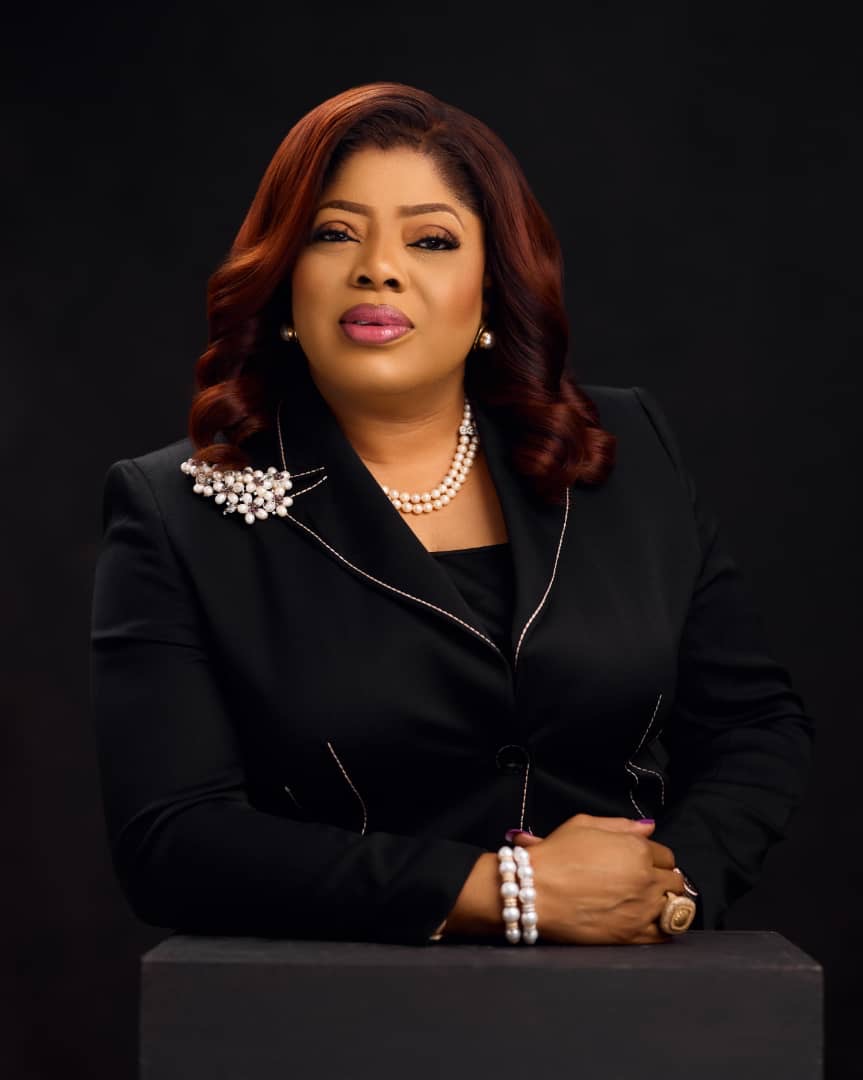
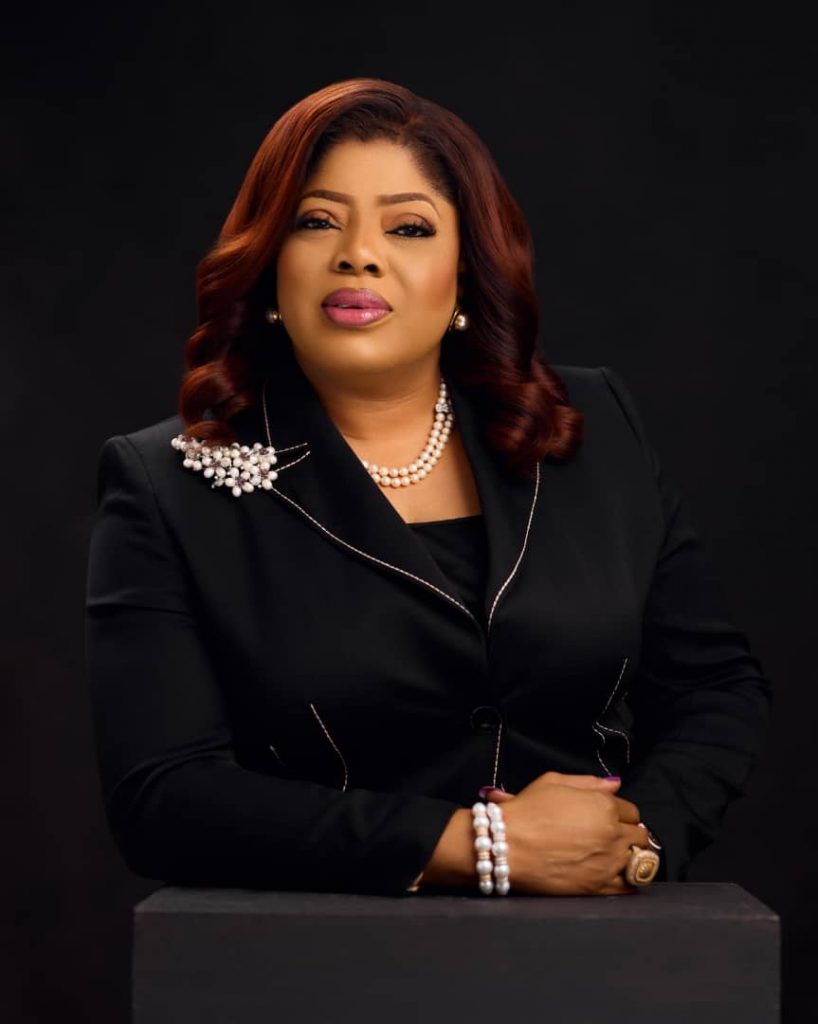 Tier one bank, Fidelity Bank PLC, has been named “Nigeria’s Best Private Bank” at the prestigious Euromoney Awards 2025. The recognition was formally unveiled at the awards ceremony held recently at The Savoy in London.
Tier one bank, Fidelity Bank PLC, has been named “Nigeria’s Best Private Bank” at the prestigious Euromoney Awards 2025. The recognition was formally unveiled at the awards ceremony held recently at The Savoy in London.
The Euromoney Awards for Excellence are prestigious annual honors and a benchmark for excellence in the global banking and finance industry. Established by Euromoney magazine, the awards highlight outstanding performance, innovation, leadership, and service excellence across various financial sectors and regions.
Commenting on the award, Managing Director and Chief Executive Officer of Fidelity Bank PLC, Dr. Nneka Onyeali-Ikpe said, “We are truly honored to be recognized by Euromoney as Nigeria’s Best Private Bank. This award is a testament to the hard work and dedication of our staff as well as our strong commitment to delivering premium wealth management solutions, personalized financial advisory, and superior client service to high-net-worth individuals in Nigeria and beyond.”
The Euromoney Awards are among the most highly respected in the global financial industry. Winning such an award for its private banking business further builds on Fidelity Bank’s growing reputation as one of Nigeria’s most trusted and customer-centric financial institutions.
According to a statement on Euromoney’s website, “The bank’s commitment to providing specialised credit solutions also sets it apart. Clients benefit from tailored lending options, including asset-backed lending, real estate financing, and customised credit facilities. These solutions are structured to support complex financial needs while ensuring flexibility and ease.”
Fidelity Bank Plc is a full-fledged commercial bank with over 9.1 million customers who are serviced across its 251 business offices and various digital banking channels in Nigeria and the United Kingdom.
The Bank is the recipient of multiple local and international Awards, including the 2024 Excellence in Digital Transformation & MSME Banking Award by BusinessDay Banks and Financial Institutions (BAFI) Awards; the 2024 Most Innovative Mobile Banking Application award for its Fidelity Mobile App by Global Business Outlook, and the 2024 Most Innovative Investment Banking Service Provider award by Global Brands Magazine. Additionally, the Bank was recognized as the Best Bank for SMEs in Nigeria by the Euromoney Awards for Excellence and as the Export Financing Bank of the Year by the BusinessDay Banks and Financial Institutions (BAFI) Awards.
brand
Access Holdings Records 88% Growth in Gross Earnings to N4.878 Trillion
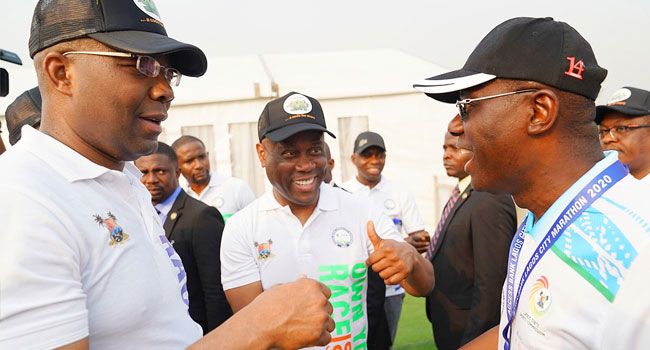
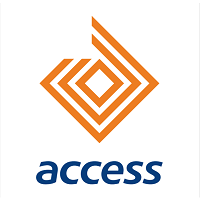 Access Holdings PLC (“the Group”) (Bloomberg: ACCESSCO), a leading African financial services group, today, announced its audited financial results for the full year ended December 31, 2024. The Group delivered 88% year-on-year growth in gross earnings, rising from N2.594 trillion in 2023 to N4.878 trillion in 2024. The strong performance was driven by diversified income streams, with interest income growing by 110% to N3.480 trillion and non-interest income increasing by 47.8% to N1.397 trillion, supported by robust retail banking activities, digital expansion, and a dynamic trading strategy.Profit before tax (PBT) increased by 19% to N867.0 billion, while profit after tax (PAT) rose to N642.2 billion, despite inflationary and macroeconomic challenges. Total assets grew by 55.5% to N41.498 trillion, and customer deposits rose by 47% to N22.525 trillion. Shareholders’ funds also increased by 72%, reaching N3.760 trillion.In 2024, the Group made significant social and environmental impact across the continent, touching millions of lives and earning multiple industry accolades. Through various corporate social investment initiatives in education, entrepreneurship, health, and the environment, the Group reached over 21 million individuals across Africa. Its employee wellness programmes also covered 28,000 staff across operating entities. Access Bank, the flagship subsidiary, through its W-Initiative, disbursed loans to over a million women-led SMEs, advancing financial inclusion and gender empowerment.The Group’s efforts attracted prestigious recognition and awards, including three Euromoney Awards for Excellence (notably ‘Best Bank for ESG’); International Finance Award for ‘Most Innovative Bank for Community Development and Community Engagement’; and World Economic Magazine Award for ‘Most Sustainable Bank’.In terms of economic sustainability, Access Bank recorded strong strides through its Economic, Social and Governance (ESG) programmes. It facilitated $437.42 million in DFI inflows to support MSMEs across Africa, disbursed 1.6 million digital loans to low-income individuals, and booked its first N1.4 billion diaspora mortgage loan.The Group also achieved a 13.4% reduction in operational emissions, planted 57,302 trees, and enabled solar power adoption for 226 homes and businesses. Its headquarters was awarded the IFC EDGE (Excellence in Design for Greater Efficiencies) Green Building Certification for sustainable design and construction
Access Holdings PLC (“the Group”) (Bloomberg: ACCESSCO), a leading African financial services group, today, announced its audited financial results for the full year ended December 31, 2024. The Group delivered 88% year-on-year growth in gross earnings, rising from N2.594 trillion in 2023 to N4.878 trillion in 2024. The strong performance was driven by diversified income streams, with interest income growing by 110% to N3.480 trillion and non-interest income increasing by 47.8% to N1.397 trillion, supported by robust retail banking activities, digital expansion, and a dynamic trading strategy.Profit before tax (PBT) increased by 19% to N867.0 billion, while profit after tax (PAT) rose to N642.2 billion, despite inflationary and macroeconomic challenges. Total assets grew by 55.5% to N41.498 trillion, and customer deposits rose by 47% to N22.525 trillion. Shareholders’ funds also increased by 72%, reaching N3.760 trillion.In 2024, the Group made significant social and environmental impact across the continent, touching millions of lives and earning multiple industry accolades. Through various corporate social investment initiatives in education, entrepreneurship, health, and the environment, the Group reached over 21 million individuals across Africa. Its employee wellness programmes also covered 28,000 staff across operating entities. Access Bank, the flagship subsidiary, through its W-Initiative, disbursed loans to over a million women-led SMEs, advancing financial inclusion and gender empowerment.The Group’s efforts attracted prestigious recognition and awards, including three Euromoney Awards for Excellence (notably ‘Best Bank for ESG’); International Finance Award for ‘Most Innovative Bank for Community Development and Community Engagement’; and World Economic Magazine Award for ‘Most Sustainable Bank’.In terms of economic sustainability, Access Bank recorded strong strides through its Economic, Social and Governance (ESG) programmes. It facilitated $437.42 million in DFI inflows to support MSMEs across Africa, disbursed 1.6 million digital loans to low-income individuals, and booked its first N1.4 billion diaspora mortgage loan.The Group also achieved a 13.4% reduction in operational emissions, planted 57,302 trees, and enabled solar power adoption for 226 homes and businesses. Its headquarters was awarded the IFC EDGE (Excellence in Design for Greater Efficiencies) Green Building Certification for sustainable design and construction
standards.In addition, Access employees contributed 228,500 volunteer hours to various community development programmes, reinforcing the Group’s commitment to inclusive and purpose-driven impact.The Group is focused on delivering sustainable returns to shareholders, while reinvesting in innovation, infrastructure, and cross-border expansion. Its banking subsidiary launched operations in Hong Kong, received regulatory approval in Malta, and successfully integrated its operations in Zambia and Tanzania, expanding its global footprint.Access Bank posted significant gains across all performance metrics, with interest income growing by 110% and fees and commissions rising by 81%. International subsidiaries contributed 48.5% to the banking segment’s PBT, demonstrating strong execution across key markets.In 2024, Access Holdings also became the first institution to meet the Central Bank of Nigeria’s recapitalisation directive, raising 351 billion through a rights issue. The₦ proceeds are being strategically deployed to strengthen digital infrastructure, enhance liquidity, and fuel long-term growth.Looking ahead, Access Holdings remains committed to building a more inclusive, sustainable, and profitable future, delivering delivering value not just to shareholders, but to society and the environment at large.
brand
JIM OVIA ADMITTED TO THE FREEDOM OF THE CITY OF LONDON
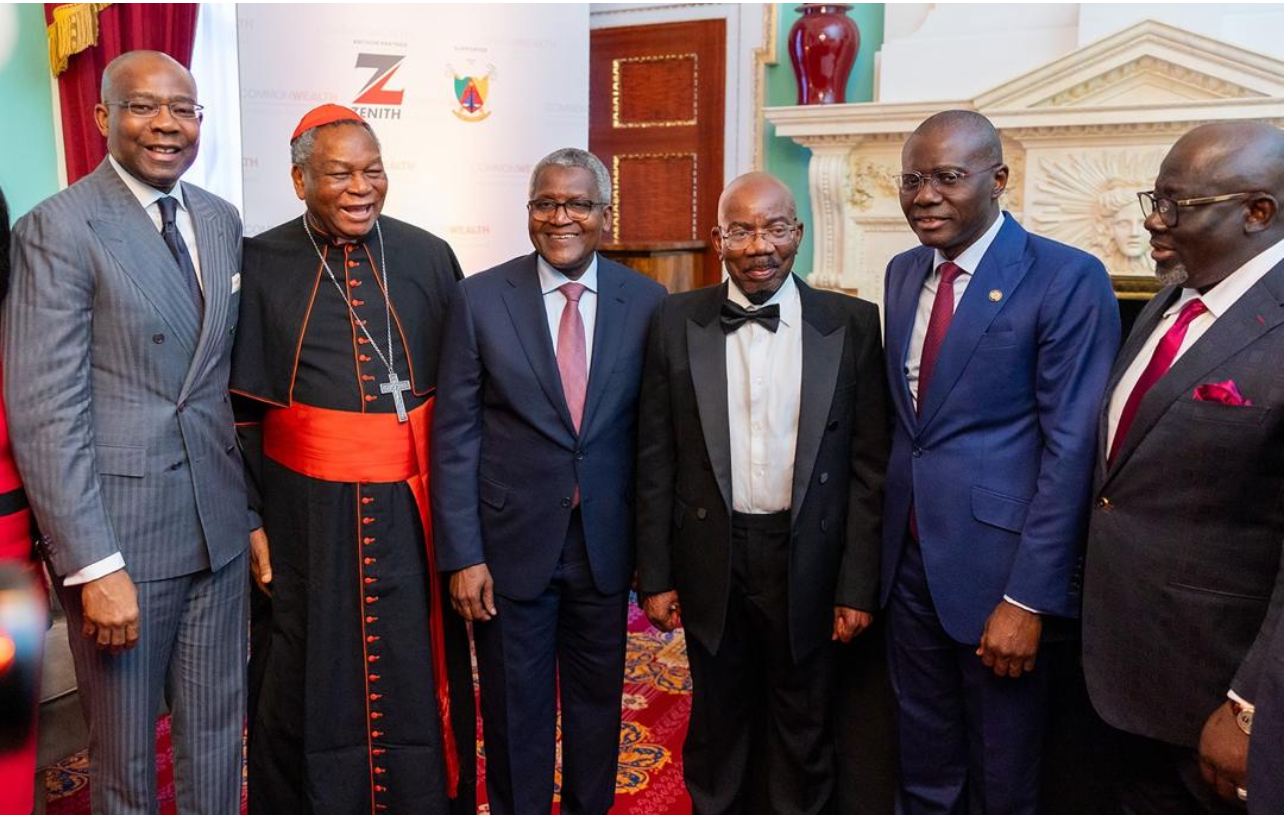
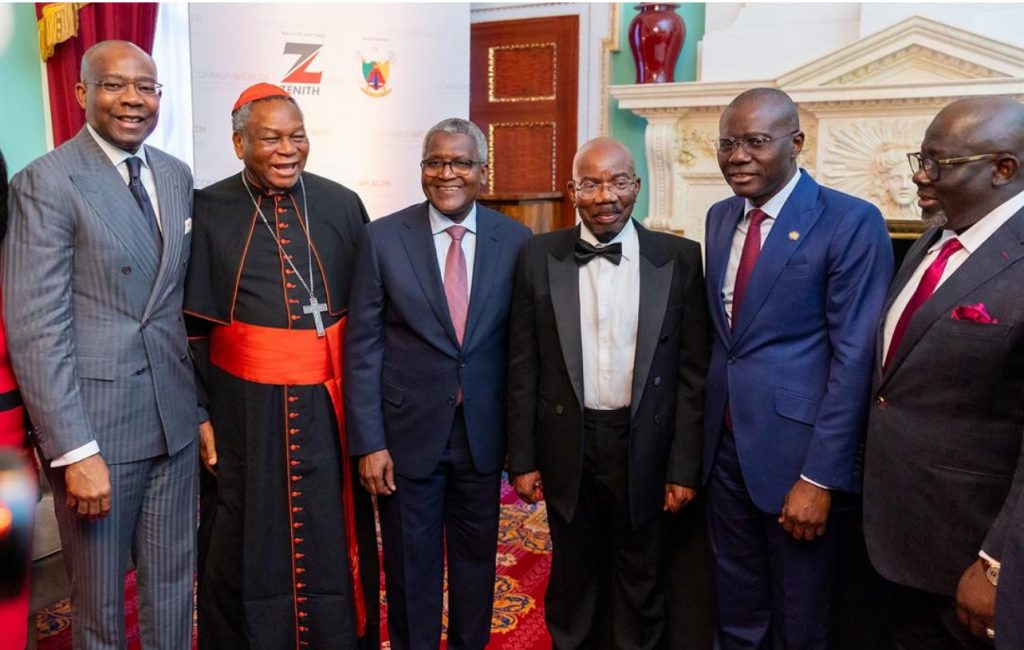 L-R: Chairman, Access Holdings Plc, Aigboje Aig-Imoukhuede, CFR; His Eminence John Cardinal Onaiyekan; President of Dangote Group, Alhaji Aliko Dangote, GCON; Founder and Chairman of Zenith Bank Plc, Jim Ovia, CFR; Governor of Lagos State, Mr. Babajide Sanwo-Olu; and Governor of Delta State, Rt.Hon. (Elder) Sherrif Oborevwori, during the admission of Jim Ovia to the Freedom of the City of London in the United Kingdom, on Monday.
L-R: Chairman, Access Holdings Plc, Aigboje Aig-Imoukhuede, CFR; His Eminence John Cardinal Onaiyekan; President of Dangote Group, Alhaji Aliko Dangote, GCON; Founder and Chairman of Zenith Bank Plc, Jim Ovia, CFR; Governor of Lagos State, Mr. Babajide Sanwo-Olu; and Governor of Delta State, Rt.Hon. (Elder) Sherrif Oborevwori, during the admission of Jim Ovia to the Freedom of the City of London in the United Kingdom, on Monday.
The Founder and Chairman of Zenith Bank Plc, Jim Ovia, CFR, has been admitted to the prestigious Freedom of the City of London in a distinguished ceremony which held at the Mansion House, City of London on Monday, April 7, 2025. This prestigious accolade is a testament to Mr. Ovia’s exceptional contributions to the global financial landscape, unwavering commitment to fostering economic development, and dedication to philanthropic endeavours that have positively impacted countless lives.The Freedom of the City of London, a time-honoured tradition dating back to the 13th century, is one of the oldest surviving ceremonies in the United Kingdom. Historically, it granted freemen certain rights and privileges within the city. Today, it stands as a symbolic recognition of individuals who have made outstanding contributions to London or the wider society. This honour places Mr. Ovia among a distinguished group of recipients, which includes notable figures from various fields such as Nelson Mandela, Bill Gates, Sir Winston Churchill, Desmond Tutu, Harry Kane, Morgan Freeman and Ian Wright.Commenting on his new status as a Freeman of the City of London, the distinguished honoree, Jim Ovia, CFR said “It is indeed a great honour to be admitted to the prestigious Freedom of the City of London. This is not just a recognition of my personal achievements, but also a testament to the tireless efforts of the entire Zenith team who have worked diligently to establish our institution as a leading force in global finance. I am proud to be part of a legacy that celebrates innovation, excellence and the spirit of entrepreneurship. I dedicate this to the people of Nigeria and Africa who continue to inspire me with their resilience and determination. I look forward to continuing to play a role in shaping the economic landscape of our great continent and beyond.”Joining the nation in congratulating Mr. Ovia, President Bola Tinubu, through a press statement by the Special Adviser to the President on Information and Strategy, Bayo Onanuga, commended Mr. Ovia for being a distinguished ambassador of the nation’s private sector. He described the honour as a fitting recognition of his exceptional contributions to business, innovation, and technology, as well as for his role in shaping Nigeria’s financial landscape and strengthening economic ties between Africa and the rest of the world. According to him, “This honour is a testament to your unwavering commitment to excellence, your pioneering role in the growth of the financial services sector in Nigeria, and your visionary leadership that continues to inspire generations. As an accomplished entrepreneur and advocate of innovation-driven development, your recognition in the City of London affirms the global relevance of Nigerian excellence and enterprise”.Dignitaries at the ceremony include Former President of Nigeria, Chief Olusegun Obasanjo, GCFR; Governor of Lagos State, Mr. Babajide Sanwo-olu; Governor of Delta State, Rt.Hon. (Elder) Sherrif Oborevwori; Governor of Enugu State, Dr. Peter Mbah; President of Dangote Group, Alhaji Aliko Dangote, GCON; Minister of State for Finance, Dr. Doris Uzoka-Anite; Minister of Industry, Trade and Investment, Dr. Jumoke Oduwole, MFR; Minister of State for Foreign Affairs, Bianca Odumegwu-Ojukwu; Oba of Oniru, Oba Abdulwasiu Lawal; Group Managing Director, TGI Group of Companies, Rahul Savara; Obi of Onitsha, Igwe Nnaemeka Alfred Achebe, CFR, and His Eminence John Cardinal Onaiyekan, who joined Zenith Bank Executives in celebrating this significant milestone.This well-deserved recognition rides on the back of many other prestigious awards that Mr. Ovia has received for his outstanding contributions to banking, education and philanthropy including conferment of Commander of the Federal Republic (CFR) & National Productivity Order of Merit (NPOM) Award in 2022 by the Federal Government of Nigeria. He was also named the Banker of the Year in 2007 and Titan of the year in 2024 by ThisDay Newspaper, and received the African Business Leader Award from the Africa-America Institute. He received honorary degrees from the University of Lagos as well as from the University of Nigeria, Nsukka and was recognized by Forbes Africa as one of the most influential figures in banking.
-

 news4 years ago
news4 years agoUPDATE: #ENDSARS: CCTV footage of Lekki shootings intact – Says Sanwo – Olu
-

 news1 year ago
news1 year agoEnvironmental Pollutions : OGONI COMMUNITY CRIES OUT, THREATENS TO SHUT DOWN FIRSTBANK,SHELL OIL COMPANY OPERATIONS FOR NOT PAYING COURT AWARD
-

 news3 weeks ago
news3 weeks agoBreaking : TInubu appoints Bashir Ojulari as new CEO group of NNPC and GMD mele kyari get sacked, Says Onanuga
-
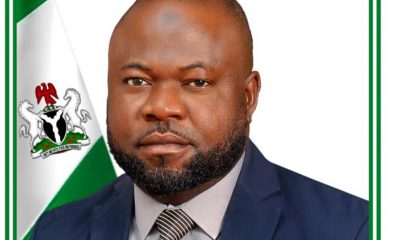
 interview3 weeks ago
interview3 weeks agoNIGERIA MECHANIZED AGRO EXTENSION SERVICE PROJECT, A STRATEGIC MOVE TO ALLEVIATE POVERTY – DR. AMINU ABDULKADIR
-

 news3 weeks ago
news3 weeks agoUpdate : Fubara ordered bombing of Rivers Assembly, I am not under duress I resigned, Says ex-Rivers HoS Nwaeke
-
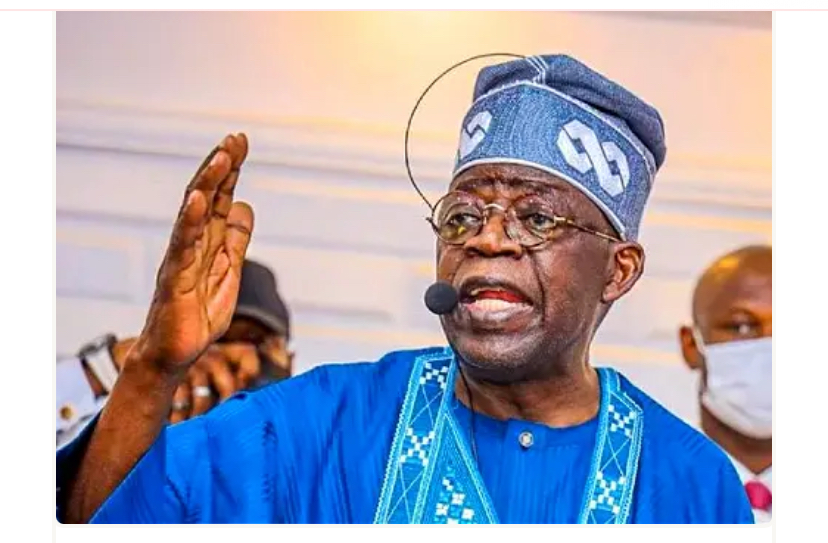
 news1 week ago
news1 week agoNothing new in FBI report on Tinubu, says Onanuga
-

 news3 weeks ago
news3 weeks agoTinubu commended Nandap for her leadership, extends Comptroller-General tenure till 2026, says Onanuga
-
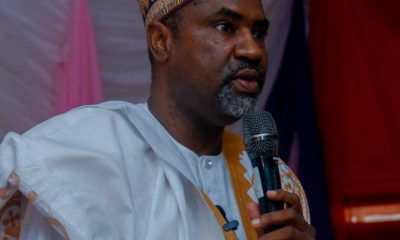
 news5 days ago
news5 days agoAirlin Advocacy Commissions Jos Office, Targets 7m Members By Next Elections,Says Mohammed Gamawa


